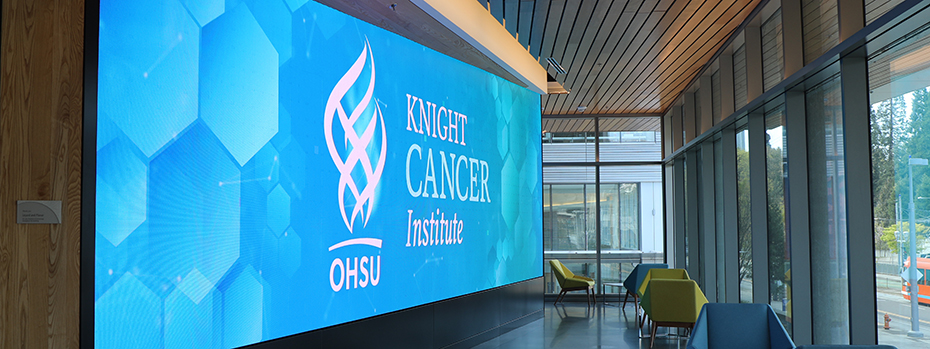Cancer Technologies

The field of biomedical engineering holds tremendous promise for finding cancer earlier and treating it more precisely and effectively. Researchers at OHSU work closely with the Knight Cancer Institute and the Cancer Early Detection Advanced Research Center (CEDAR) on pioneering methods to both study and fight cancer.
As a student in our BME program, you’ll work with nationally recognized scientists on cutting-edge cancer technology projects, including:
- State-of-the-art imaging
- Artificial intelligence
- Nanomedicine and nanotechnology for drug delivery
- Tissue-engineered tumor models
Our projects include:
- Understanding the mechanisms of genomic instability during cancer initiation and progression. (Adey Lab)
- Identifying predictors of drug response and resistance, using new imaging techniques to see phenotypic changes associated with molecular aberrations and therapeutic response, and studying the influence of the microenvironment on cancer cells. (Heiser Lab)
- Engineering 3D programmable tissue-engineered tumor models to study cancer initiation, discover cancer biomarkers and test therapeutic interventions. These model systems use 3D bioprinting and stimuli-responsive materials to create patient-specific models of the tumor microenvironment for studying cancer progression and improving therapies. (Schutt Ibsen Lab)
- Developing remote-controlled, ultrasound-activated nanoparticle drug delivery systems to precisely deliver cancer therapies and reduce adverse effects of cancer treatments. (Schutt Ibsen Lab)
- Use of fluorescent contrast agents for image-guided surgery and tumor margin assessment during surgery. (Gibbs Lab)
- Cyclic immunostaining for multicolor microscopy to understand cancer and improve therapy. (Gibbs Lab)
- Microenvironment microarray (MEMA) technology, which allows us to construct thousands of simple combinatorial microenvironments on a single plate, where we can culture cells and determine how the microenvironment alters the characteristics of both normal and cancer cells. (Korkola Lab)
- Integration and analysis of large-scale cancer datasets with the goal of finding effective treatment targets. (Ellrott Lab)
- Developing a computational framework for generating surrogate multiplex tissue imaging data, which enables the identification of cancer biomarkers by mitigating the impact of assay shortcomings like tissue loss, technical noise and low-quality markers. (Chang Lab)
- Development of new cancer drugs, radiation sensitizers, immunotherapies and vaccines based on nanoparticle delivery of drugs, DNA/RNA fragments, checkpoint inhibitors and adjuvants to cancer and/or immune cells. (Yantasee Lab)
- Define how the organization of molecules in the structural and signaling scaffolds that interact with the mechanical environment changes with invasive potential (called the metastatic fingerprint). (Galbraith Lab)
Join our program
Your research career starts here.